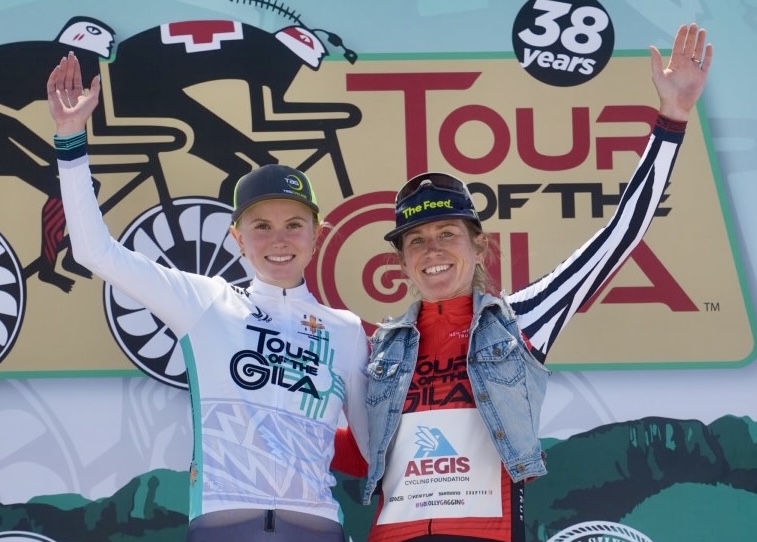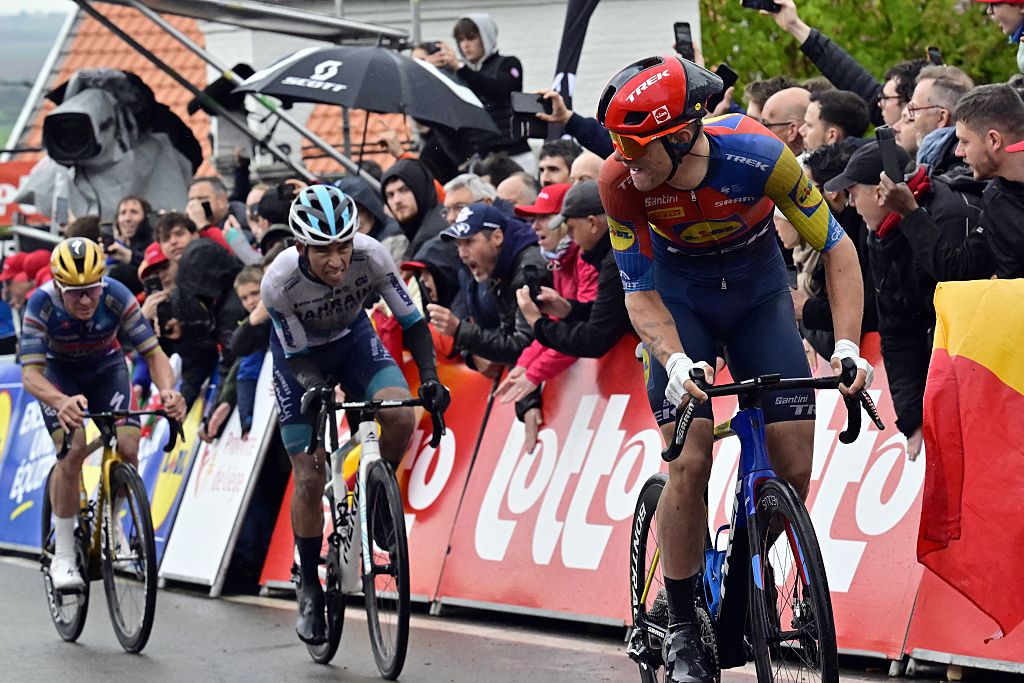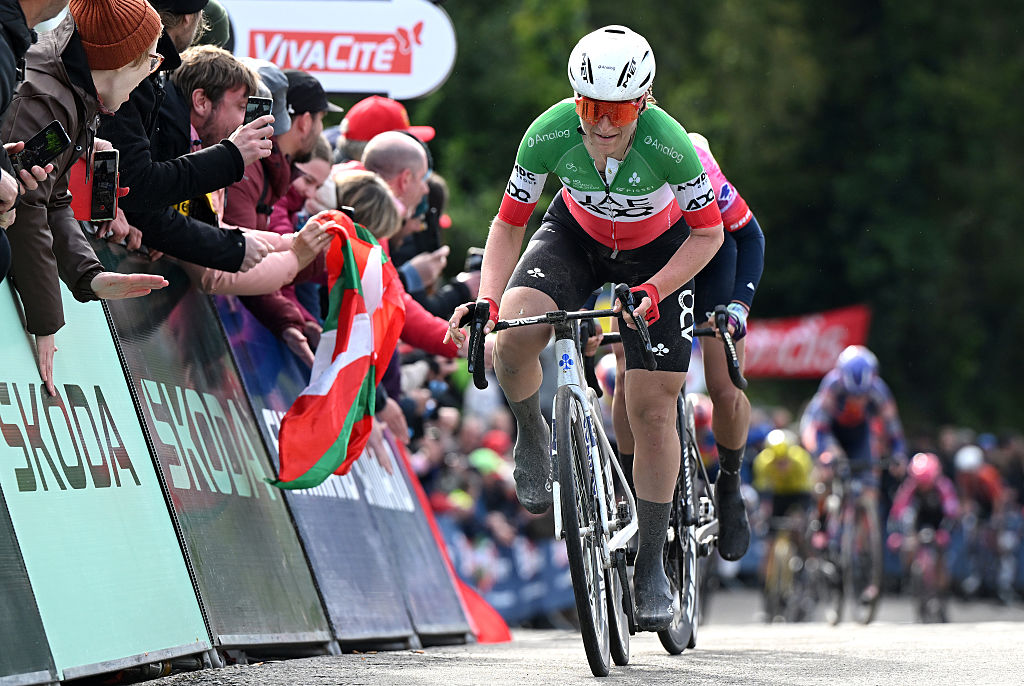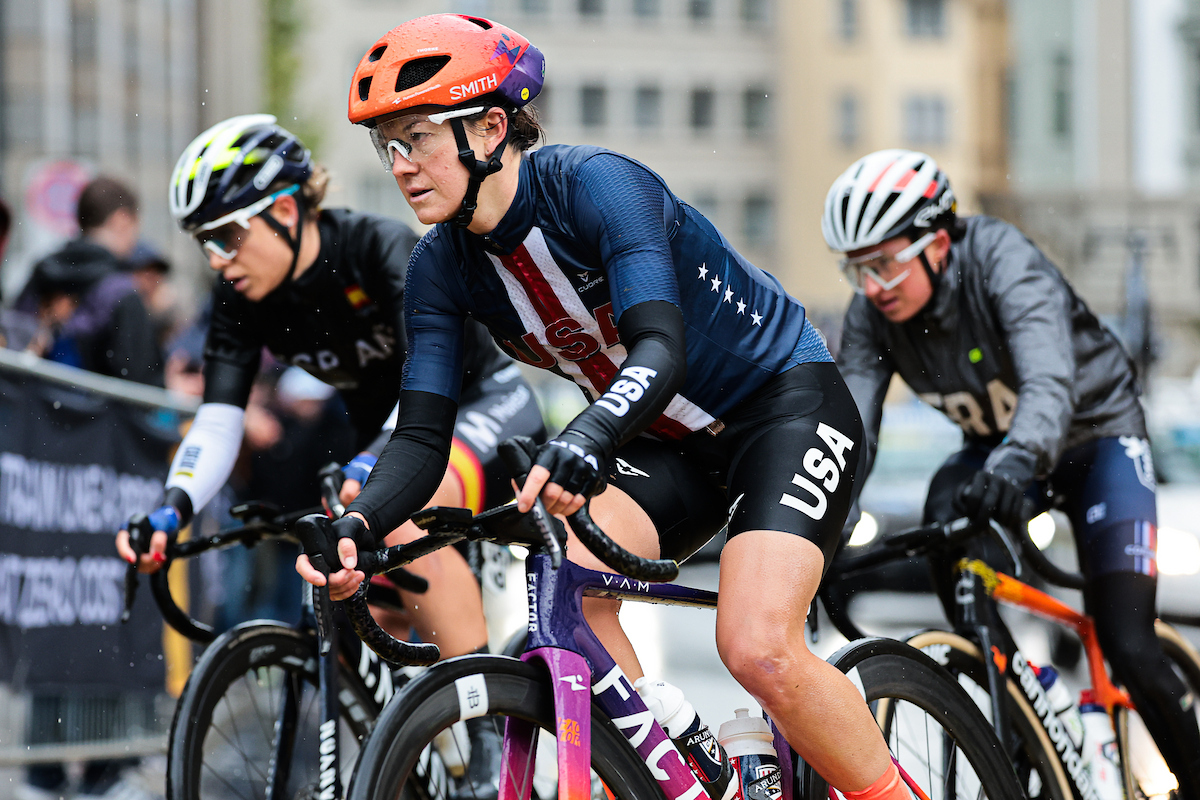Liège-Bastogne-Liège 2021 - Preview
Unfinished business for Alaphilippe at the oldest of the Monuments and a tilt at a fifth victory for Valverde
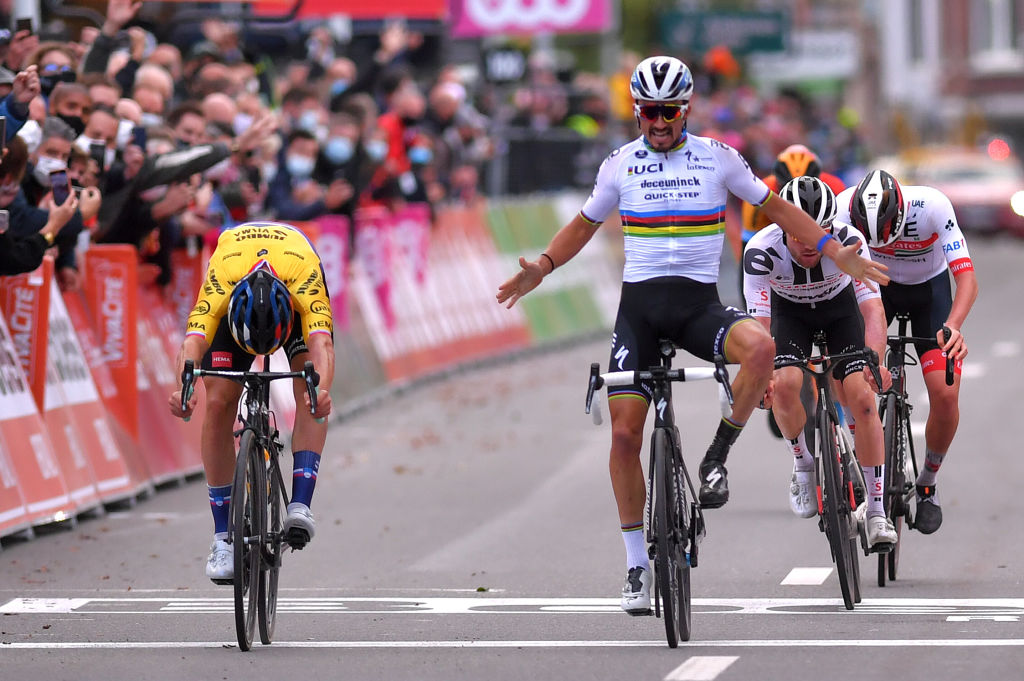
The finish of last year’s Liège-Bastogne-Liège was one of the most dramatic moments of the 2020 season. Julian Alaphilippe (Deceuninck-QuickStep) was, typically, the man at the centre of it all, appearing to be on the brink of victory in a five-man sprint to the line before making the fatal mistake of celebrating too early, allowing Primož Roglič (Jumbo-Visma) to lunge ahead of him to his right-hand side.
Add to that the extra controversy of Alaphilippe being relegated for deviating from his sprinting line, and the finish alone had enough talking points to keep cycling fans debating and discussing it for days afterwards.
Looking back now, however, perhaps the most interesting thing about the race was how it was decided by a small group sprint, something which bucked the trend of recent editions – and perhaps suggested that the changes to the route implemented in 2019 are working.
Despite its esteemed status as La Doyenne, the oldest of the five monuments, Liège-Bastogne-Liège has suffered something of an identity crisis in recent years. The organisers have tweaked and tinkered with the route, adding a climb here and removing another there, but couldn’t seem to find the right recipe to make the race more exciting and less formulaic.
From 2013 to 2018, all but two editions ended in large group sprints, as the favourites rode conservatively, keeping their powder dry until the uphill finish in Ans.
In 2019, the organisers made the significant decision to move the finish from Ans into the centre of Liège, and the effect has been immediate. The final climb of the Côte de la Roche-aux-Faucons is now 13.5 kilometres from the finish, and has formed the decisive selections in both the editions since, making for two prolonged and very exciting endgames.
In 2019, Jakob Fuglsang went clear on the climb with Davide Formolo and Michael Woods, before dropping them both on the draggy run-in to the finish to solo to victory. Then last year, Alaphilippe took Marc Hirschi, Tadej Pogačar and Roglič with him over the climb, leading to that fateful sprint.
The contenders
Given what happened last year, you sense Alaphilippe has unfinished business with Liège-Bastogne-Liège. He has come close to winning it before, finishing second on debut way back in 2015, but last year’s defeat will have been especially painful.
The Frenchman brings terrific form with him into this year’s race, having just about got the better of Roglič to win Flèche Wallonne, and the two will once again surely be among the top contenders on Sunday.
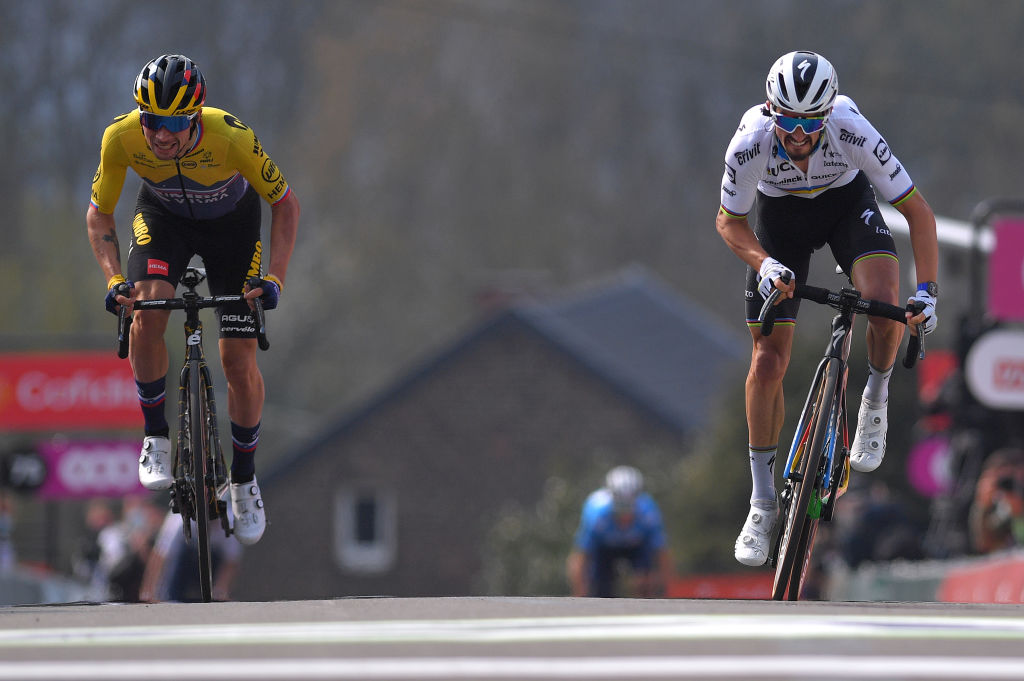
It’s tempting to bill this year’s race as a rematch between the world champion and the defending champion, but there are many other riders who are capable of winning. Alejandro Valverde (Movistar), for one, wasn’t too far behind them on the Mur de Huy, and has the form and the experience to add what would be a record-equalling fifth Liège-Bastogne-Liège victory.
Both Michael Woods (Israel Start-Up Nation) and Max Schachmann (Bora-Hansgrohe) have been in good form of late, and are among the most consistent performers in the Ardennes classics in recent years, but perhaps lack the X-factor to make the leap from top-five finishes into victories.
Two riders who certainly do have the X-factor are the UAE Team Emirates duo of Marc Hirschi and Pogačar, but their participation remains unsure following the COVID-19 outbreak that forced the team to withdraw from La Flèche Wallonne.
Even if Tom Pidcock ends up being absent, Ineos Grenadiers have multiple potential winners, with Adam Yates, Richard Carapaz and Michal Kwiatkowski all on the start-list.
Past winners Jakob Fuglsang (Astana-Premier Tech), Dan Martin (Israel Start-Up Nation), Philippe Gilbert (Lotto-Soudal) and Wout Poels (Bahrain-Victorious) are all set to line up, but all appear to lack the form to add another title.
The likes of Michael Matthews (BikeExchange), Bauke Mollema (Trek-Segafredo), David Gaudu (Groupama-FDJ), Matej Mohorič (Bahrain-Victorious), Alex Aranburu (Astana-Premier Tech) and Warren Barguil (Arkéa-Samsic) are all good shouts for high placings, and could, with a bit of luck, pull off a surprise victory.
The route
This year’s Liège-Bastogne-Liège will feature a total of 11 categorised climbs, spread out across 259.5 kilometres of tough, arduous racing through the lumpy terrain of Wallonia.
The first 100 kilometres are uneventful, with just one climb featured as the peloton – as per the race’s name – travels in a southerly direction towards Bastogne.
After changing direction to begin to head back towards Liège the race really gets going upon arrival at Côte de Mont-le-Soie, which is the first of nine climbs all concentrated in the last 100 kilometres of the race. From here to the finish the parcours is constantly undulating and barely features a kilometre of flat, and that is what gives the race its status as one of the hardest on the calendar.
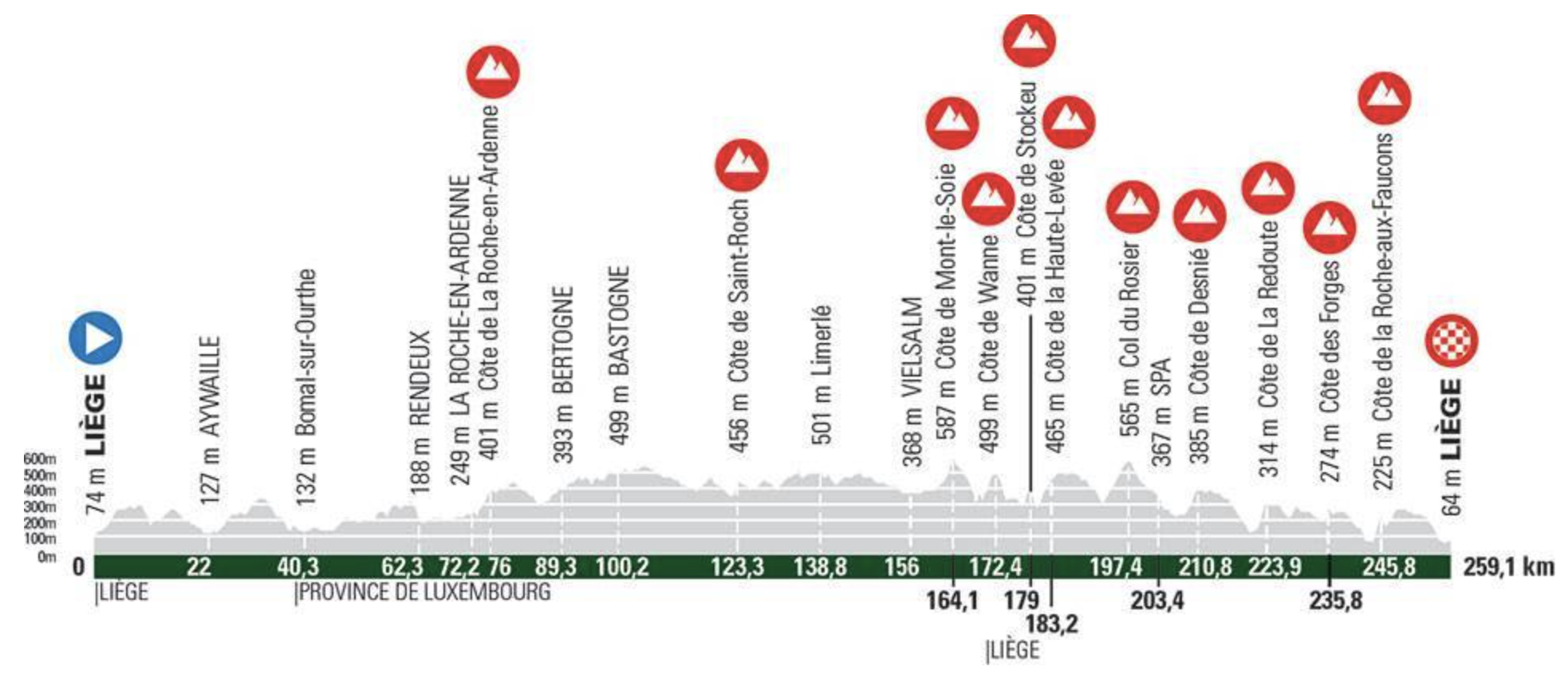
Four more climbs follow in quick succession, before the riders arrive at the Côte de Desnié, a new addition for 2021. At 1,600 metres long and averaging 8.1 per cent, with a particularly stinging section halfway up, it’s a climb very much in keeping with the rest of the climbs in Liège-Bastogne-Liège.
It’s unlikely to see any serious attacks, as upon cresting it the peloton will descend to the base of the Redoute, the most famous, and difficult, obstacle on the menu. The sight of its steep – it averages almost 10 per cent – straight road, with the names of the fans’ favourites written all across the tarmac, is the defining image of Liège-Bastogne-Liège, even if its position 35 kilometres from the finish means its role is generally to whittle down the peloton rather than be the launchpad for race-winning attacks.
After that, there are just two climbs left to take on: Côte des Forges 22 kilometres from the finish, then finally Côte de la Roche-aux-Faucons another 9 kilometres later. Some could be tempted to make their move on the former, but it’s the latter that has produced the winner in both the previous two Doyenne editions.
Following some draggy false flats, the descent through the forest to the finish in Liège can be pretty hairy, especially given the fatigue felt after such a hard day of racing, and Fuglsang very nearly came a cropper while he was soloing to victory in 2019. But there are no more climbs to contend with, meaning any riders still together at this point will likely have to duke it out in a sprint to determine the winner.
Get The Leadout Newsletter
The latest race content, interviews, features, reviews and expert buying guides, direct to your inbox!
Stephen Puddicombe is a freelance writer based in Bristol. He has written for Cyclingnews since 2020, and has covered cycling professionally as a freelancer since 2013, writing for outlets such as Rouleur, Cycling Weekly and Cycle Sport, among other publications. He is the author of The World of the Tour de France, published by Sona Books. Outside of cycling he is a passionate cinephile, and a long-suffering Spurs fan.
Latest on Cyclingnews
-
Tour of the Gila: Lauren Stephens and Eric Brunner set the GC markers on stage 1 with Tyrone time trial victories
Defending women's champion Stephens dominates ITT with one minute margin over 17-year-old runner-up Sidney Swierenga -
'I suffered because of the cold' - Miserable weather affects Thibau Nys' debut performance at Flèche Wallonne
'I was too hot and then too cold again. That really affected my legs, very early in the final' Lidl-Trek rider finishes 8th despite discomfort in rain-soaked Huy -
'I blew up a little bit' - Elisa Longo Borghini lands podium at Flèche Wallonne and gains confidence for Liège-Bastogne-Liège
Italian Champion holds off Niewiadoma-Phinney for third place on Mur de Huy final ascent to finish -
Ruth Edwards wins first Pan American Championship title at individual time trial
Emily Ehrlich adds silver in ITT for USA to pair of gold medals from Track Pan Ams
